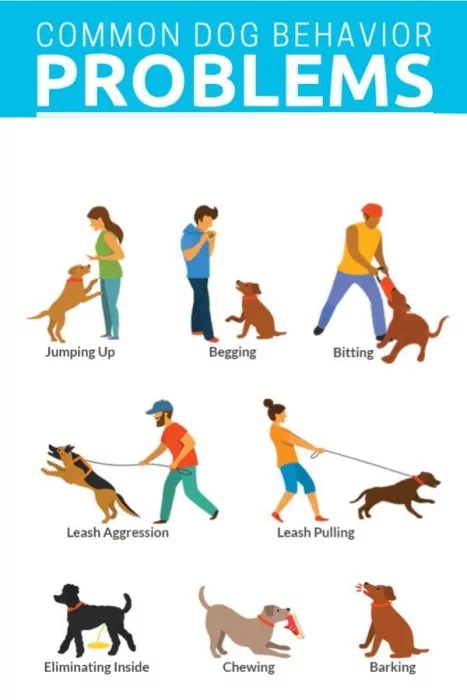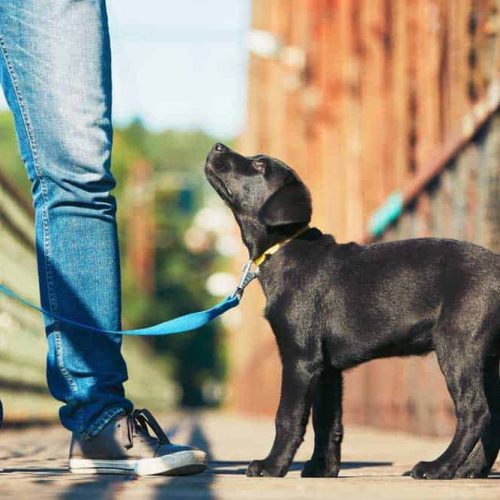Choosing the Right Dog Training For Dogs: Finding the Best Methods for Success
Choosing the Right Dog Training For Dogs: Finding the Best Methods for Success
Blog Article
Leading Dog Educating Strategies for Every Stage of Your Pet's Life
Reliable pet training is necessary at every phase of a canine's life, as each phase provides special difficulties and possibilities for development. It is important to identify that training needs to evolve together with a canine's development, guaranteeing that methods stay efficient and relevant.
Puppy Training Essentials
Puppy training essentials lay the foundation for a mannerly grown-up dog and involve a number of vital parts that ought to not be forgotten. The first phase of training concentrates on developing a strong bond between the puppy and its proprietor, which is essential for effective interaction. Socialization is paramount; revealing young puppies to different atmospheres, people, and various other animals aids them create self-confidence and flexibility, minimizing the possibility of behavioral issues later on in life.
Basic commands, such as rest, stay, and come, develop the foundation of obedience training. Making use of positive support methods, such as treats and appreciation, motivates wanted habits and promotes a positive understanding experience. Consistency in commands and training sessions is essential, as pups grow on routine and framework.
Furthermore, residence training is an important aspect of young puppy training. Developing a regular timetable for shower room breaks and using assigned locations can help reduce accidents and promote good routines. In general, a well-rounded approach to puppy training, incorporating obedience, house, and socialization training, sets the stage for a well-adjusted adult canine, ensuring a harmonious connection between the family pet and its proprietor.
Adolescent Behavior Monitoring
As young puppies develop right into teens, their actions can change significantly, usually presenting new challenges for owners. This developing phase, typically occurring in between six months and 2 years, is marked by heightened energy levels, curiosity, and a burgeoning sense of self-reliance. Recognizing these changes is vital for effective habits monitoring.
Teens might exhibit rebellious tendencies, such as overlooking commands they previously mastered or taking part in devastating actions. Consistency in training stays extremely important; strengthening learned actions with favorable reinforcement can assist counteract these challenges. Short, interesting training sessions are important to maintain their rate of interest and focus.

Furthermore, establishing a structured routine can considerably enhance a teenage pet dog's complacency. Regular exercise is vital to channel their energy positively, minimizing the probability of undesirable habits. By utilizing these methods, proprietors can successfully browse the intricacies of teenage behavior, fostering a well-adjusted, delighted canine companion.
Grown-up Pet Obedience Strategies

Favorable reinforcement continues to be a crucial strategy; gratifying etiquette with deals with, praise, or playtime motivates conformity. Consistency is crucial; the exact same commands and benefits need to be used by all relative to prevent complication.
Incorporating training into daily regimens can also be effective. As an example, method commands throughout walks or meal times, enabling training to blend effortlessly into daily life. Participating in structured tasks, like dexterity training courses or obedience courses, can further boost a canine's abilities while supplying beneficial socializing chances.
It is essential to acknowledge that grown-up pet dogs might likewise exhibit stubbornness or complacency. Adjusting training strategies site here to keep their interest, such as varying rewards or introducing brand-new commands, can aid receive inspiration. Overall, a continuous commitment to obedience training will certainly cultivate a well-behaved and well balanced adult pet.
Elderly Pet Dog Adaptation Techniques
Recognizing the distinct requirements of senior pets is essential for ensuring their convenience and health. As pets age, they might experience a decline in mobility, vision, and cognitive feature, demanding tailored adaptation strategies.
First, consider modifying the living setting. Guarantee that the home is easily accessible and secure; remove obstacles and provide non-slip surface areas to avoid drops. Additionally, consider utilizing steps or ramps to aid them access their preferred rooms.
Second of all, exercise must be adapted to make up decreased stamina and joint health (Dog Training For Dogs). Take part in shorter, extra regular walks, and include gentle tasks like swimming, which can be valuable for arthritic joints
Additionally, mental excitement remains important. Use simple problem toys or participate in scent job to keep their minds sharp, while avoiding frustrating jobs that may discourage them.
Last but not least, routine vet exams are vital to check health modifications and change treatment regimens appropriately. By implementing these adaptation techniques, you can improve the top quality of life for your elderly canine, ensuring they age beautifully and comfortably.
Lifelong Knowing and Enrichment
While pet dogs of every ages gain from finding out and psychological excitement, long-lasting enrichment is specifically important for maintaining cognitive health and wellness and emotional well-being in both senior and more youthful pets. Engaging activities not only enhance a canine's high quality of life but likewise enhance the bond between the dog and its owner.
Enrichment can take different forms, including interactive playthings, problem feeders, and aroma work, which boost a pet's detects and encourage analytic. Regular training sessions, including brand-new commands or tricks, maintains their minds sharp and advertises a feeling of success. Socialization with other dogs and individuals is equally important, as it helps protect against behavior problems and fosters right here versatility.
Additionally, integrating workout into a pet dog's routine is essential for total health and wellness. Tasks like dexterity training, bring, or long strolls offer both physical and mental stimulation, ensuring pet dogs remain satisfied and engaged.
Finally, consider differing the environment by presenting new areas for strolls or playdates. This modification can reignite a dog's interest and interest for exploration. Lifelong understanding and enrichment not only add to a satisfying life however additionally promote an unified connection with your canine friend.
Verdict
Effective canine training methods progress throughout a pet's life, addressing the one-of-a-kind needs of each developmental stage. Emphasizing routine mental stimulation, socialization, and physical exercise fosters a balanced and satisfying life for canines.
Efficient pet dog training is essential at every stage of a pet dog's life, as each phase provides special obstacles and possibilities for development.Puppy training basics lay the foundation for a mannerly grown-up pet dog and entail numerous vital parts that should not be ignored. On the whole, an all-round technique to puppy training, integrating residence, obedience, and socializing training, establishes the stage for a well-adjusted grown-up pet dog, guaranteeing a harmonious relationship in between the family pet and its owner.
Numerous dog proprietors may find that grown-up pet dogs, while usually even more steady in click for source behavior than their teenage equivalents, still need regular training to maintain obedience and great manners.Reliable pet dog training techniques evolve throughout a pet dog's life, attending to the distinct needs of each developing stage.
Report this page